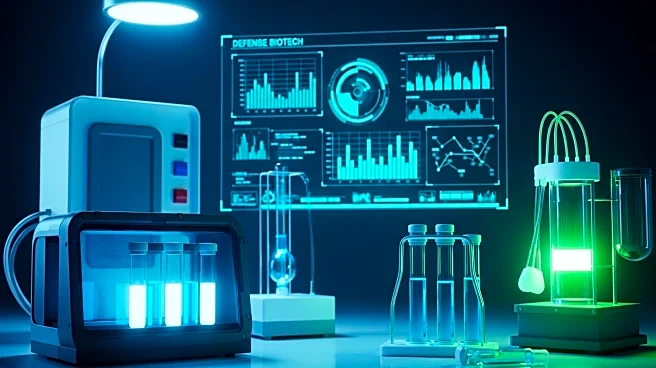What's Happening?
U.S. lawmakers, led by Sen. Todd Young, are advocating for increased investment in defense biotechnology to keep pace with China's advancements in the field. The push comes as China incorporates technologies like gene editing for military applications. Young and other lawmakers emphasize the importance of biotechnology as a national security priority and an economic driver. Concerns have been raised about the Trump administration's cuts to scientific research funding, which could hinder U.S. competitiveness. The National Security Commission on Emerging Biotechnology has made several recommendations to enhance U.S. biotech capabilities, including the development of biological sensors and dynamic camouflage for military use.
Why It's Important?
The call for increased biotech research funding highlights the strategic importance of biotechnology in national defense and economic growth. As China makes significant strides in biotech, the U.S. risks falling behind in critical areas that could impact military readiness and technological leadership. The potential applications of biotechnology in defense, such as pathogen detection and combat lifesaving, underscore its value in enhancing military capabilities. The bipartisan support for biotech investment, as seen in the CHIPS and Science Act, reflects a broader recognition of the need to bolster U.S. technological independence.
What's Next?
Lawmakers are working to incorporate biotechnology measures into the National Defense Authorization Act, which would mandate the Pentagon to develop a strategy for biotech efforts. The administration's response to these legislative efforts will be crucial in determining the future direction of U.S. biotech research. The outcome could influence the U.S.'s ability to compete with China and maintain its technological edge in defense.








